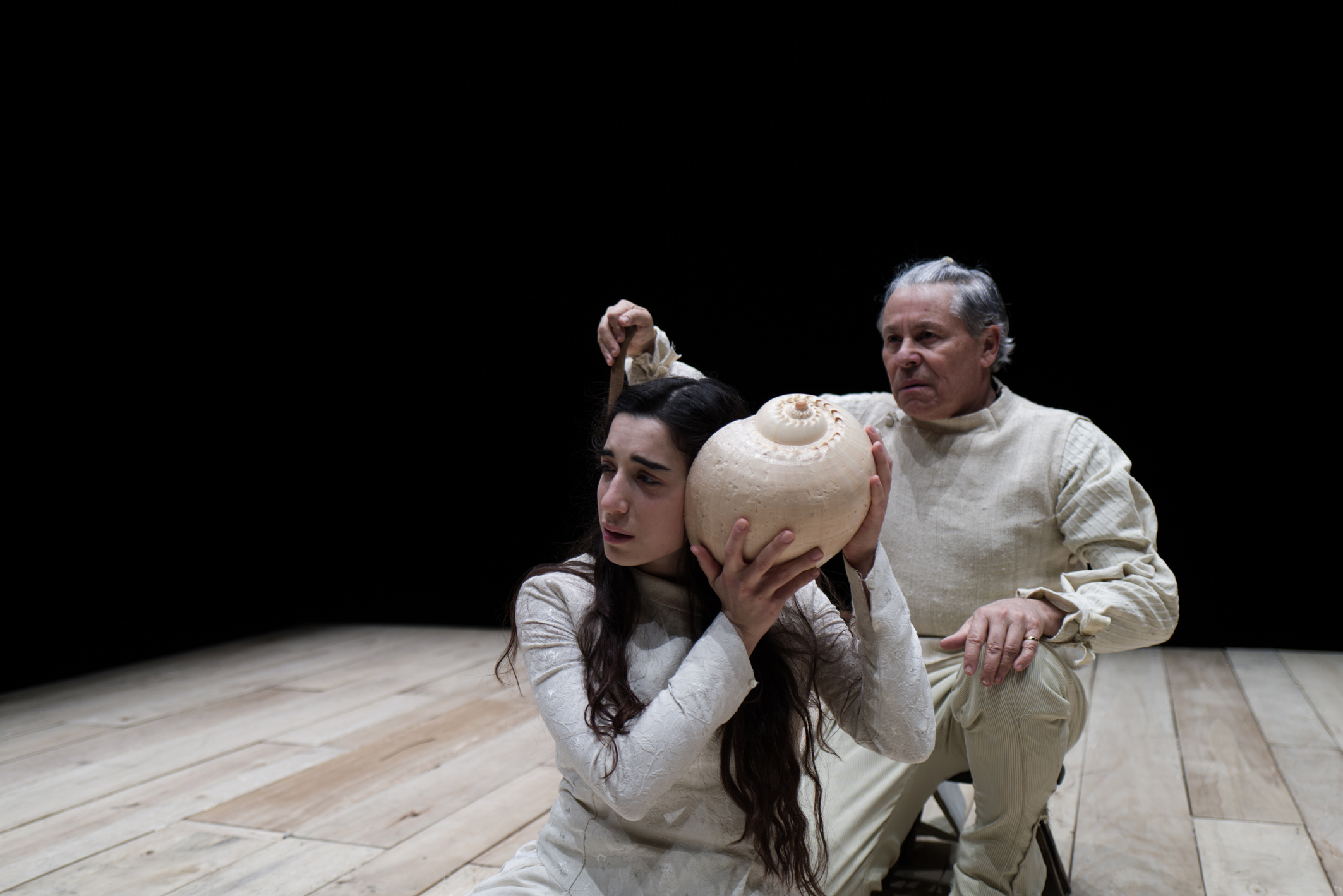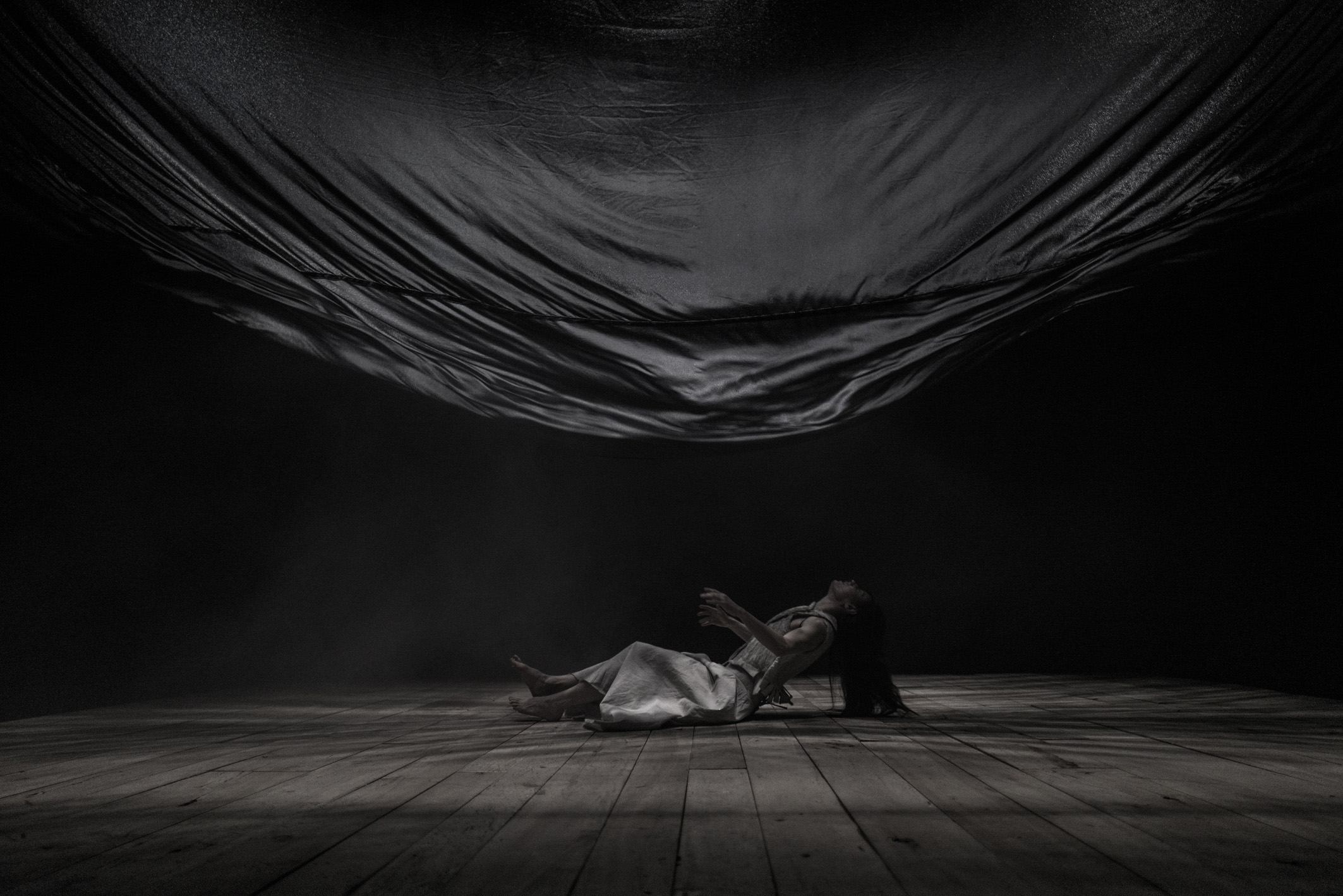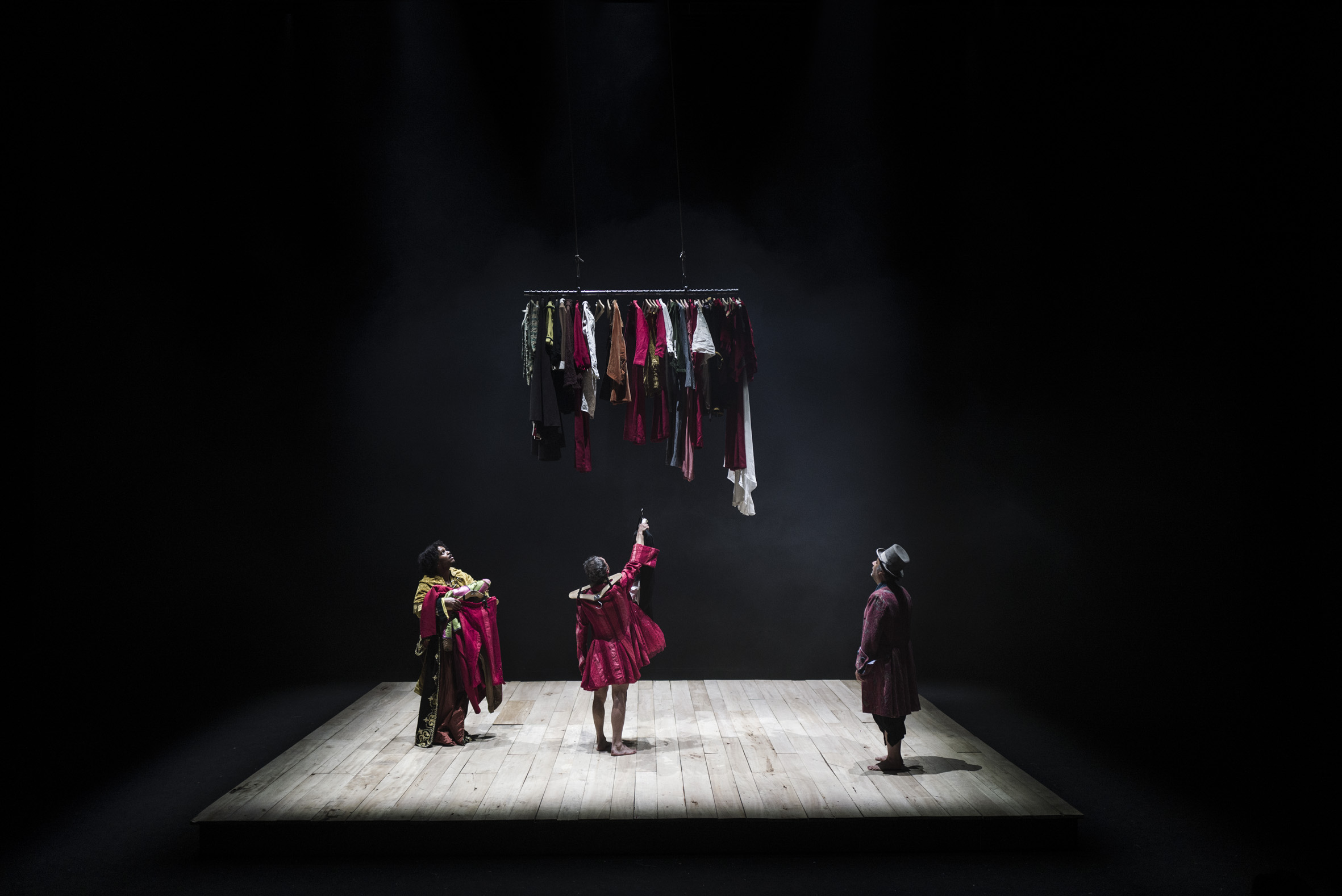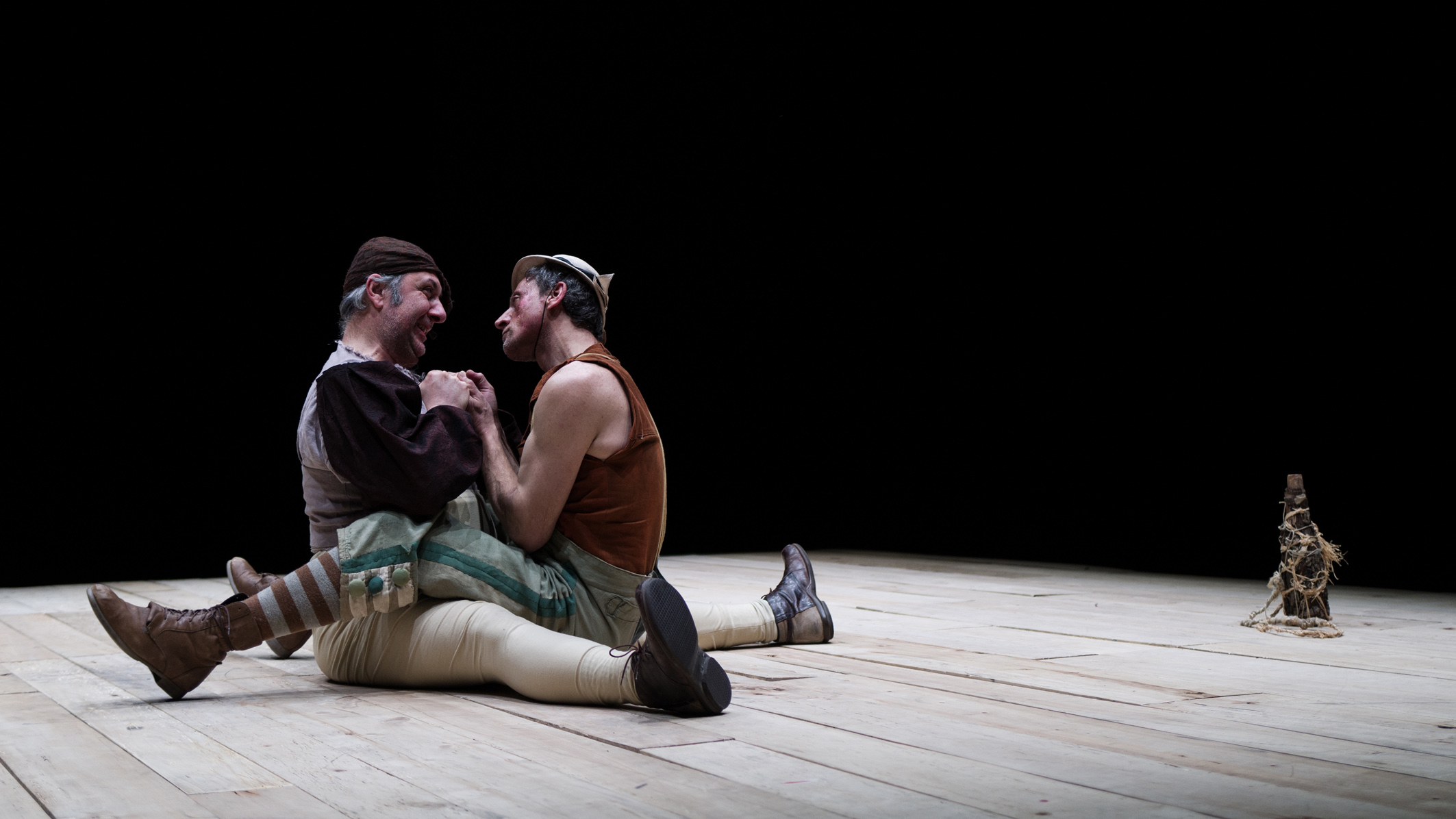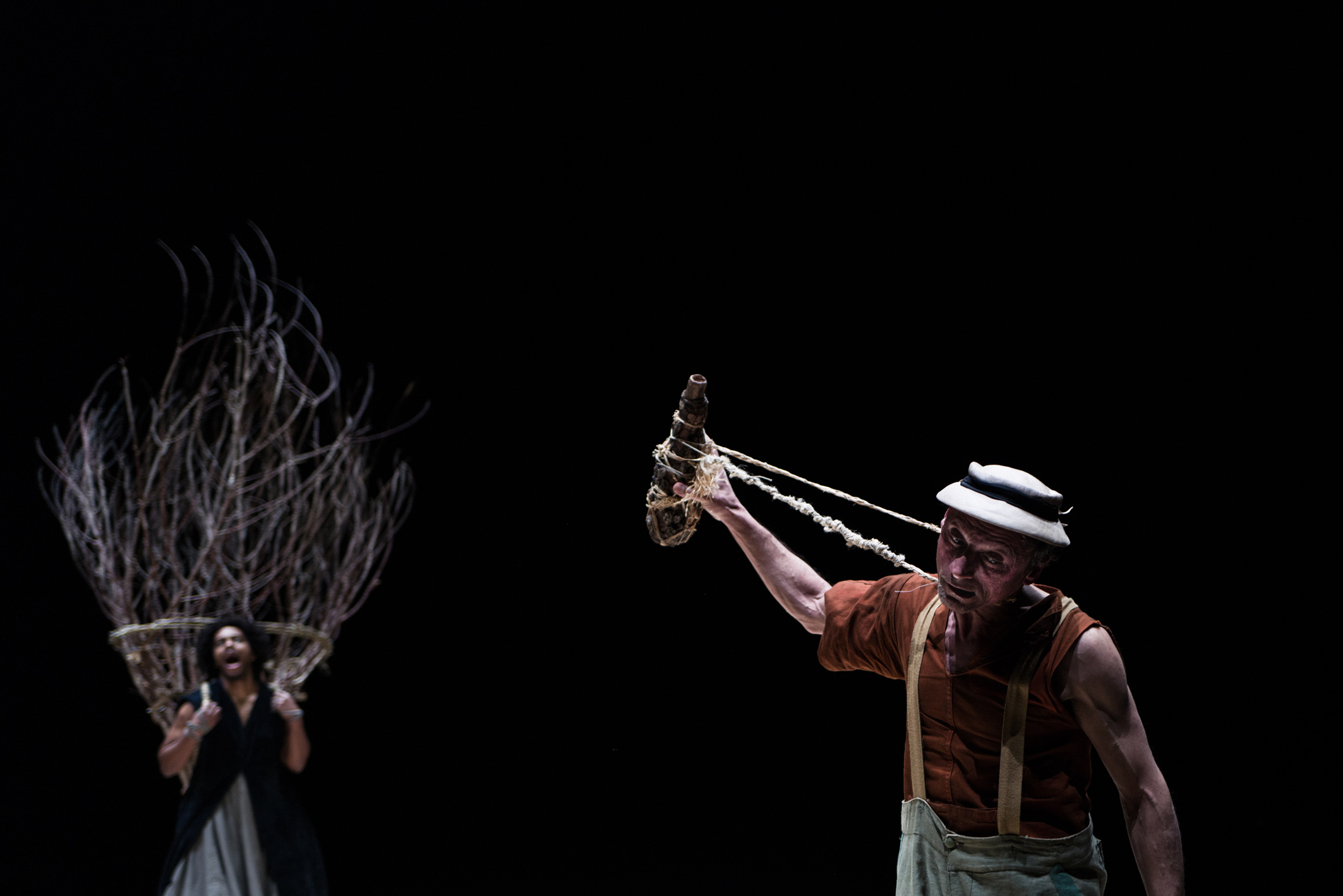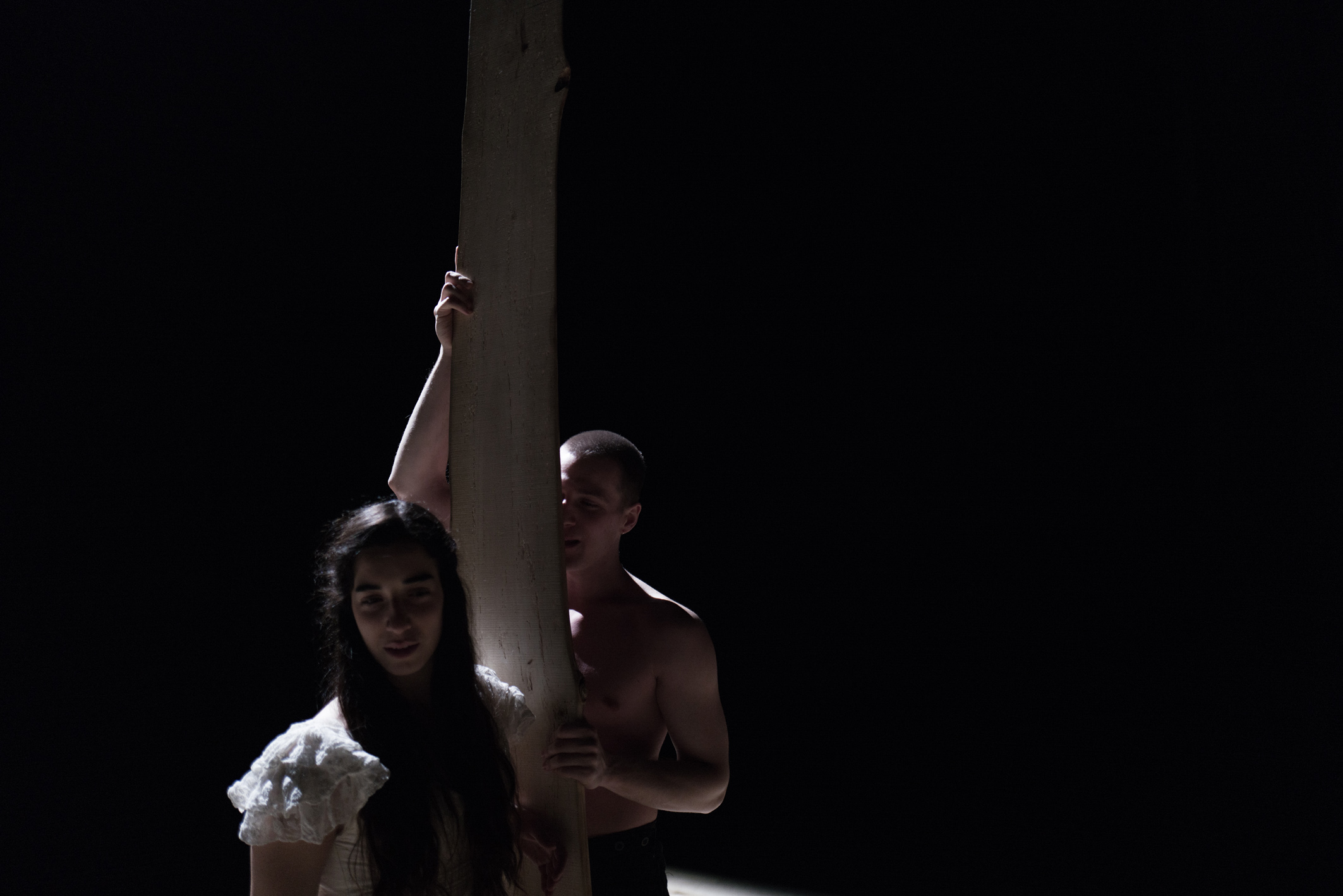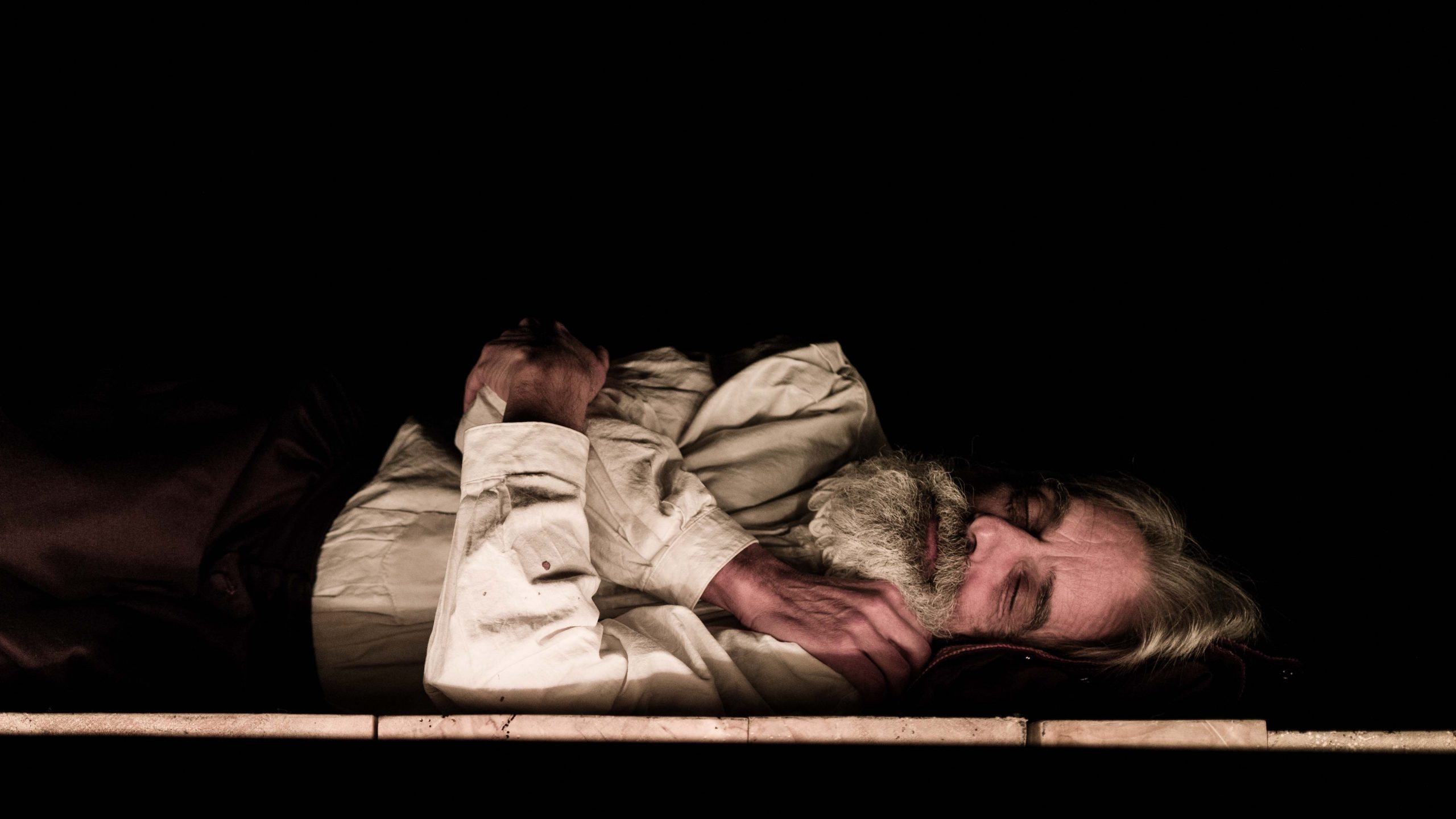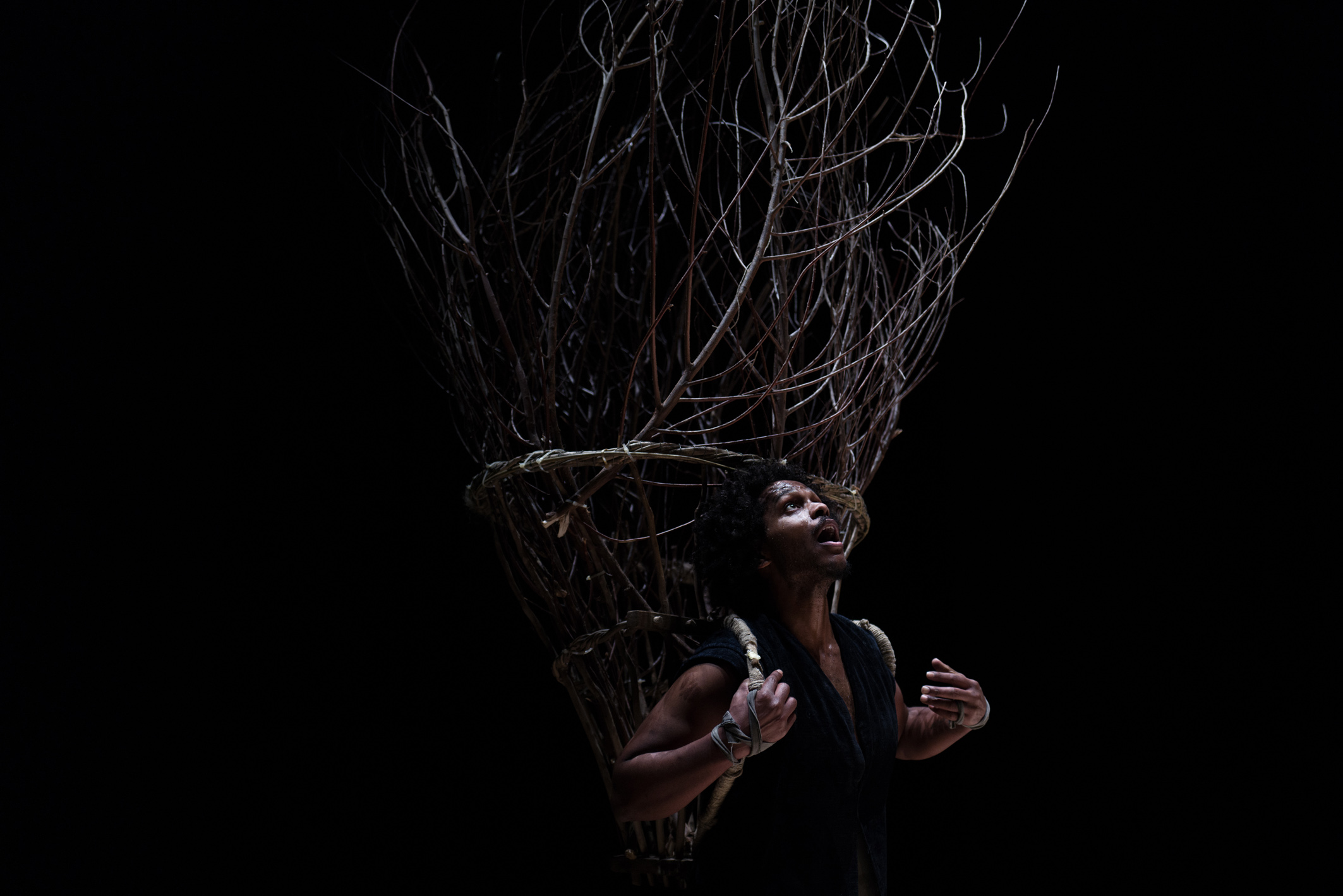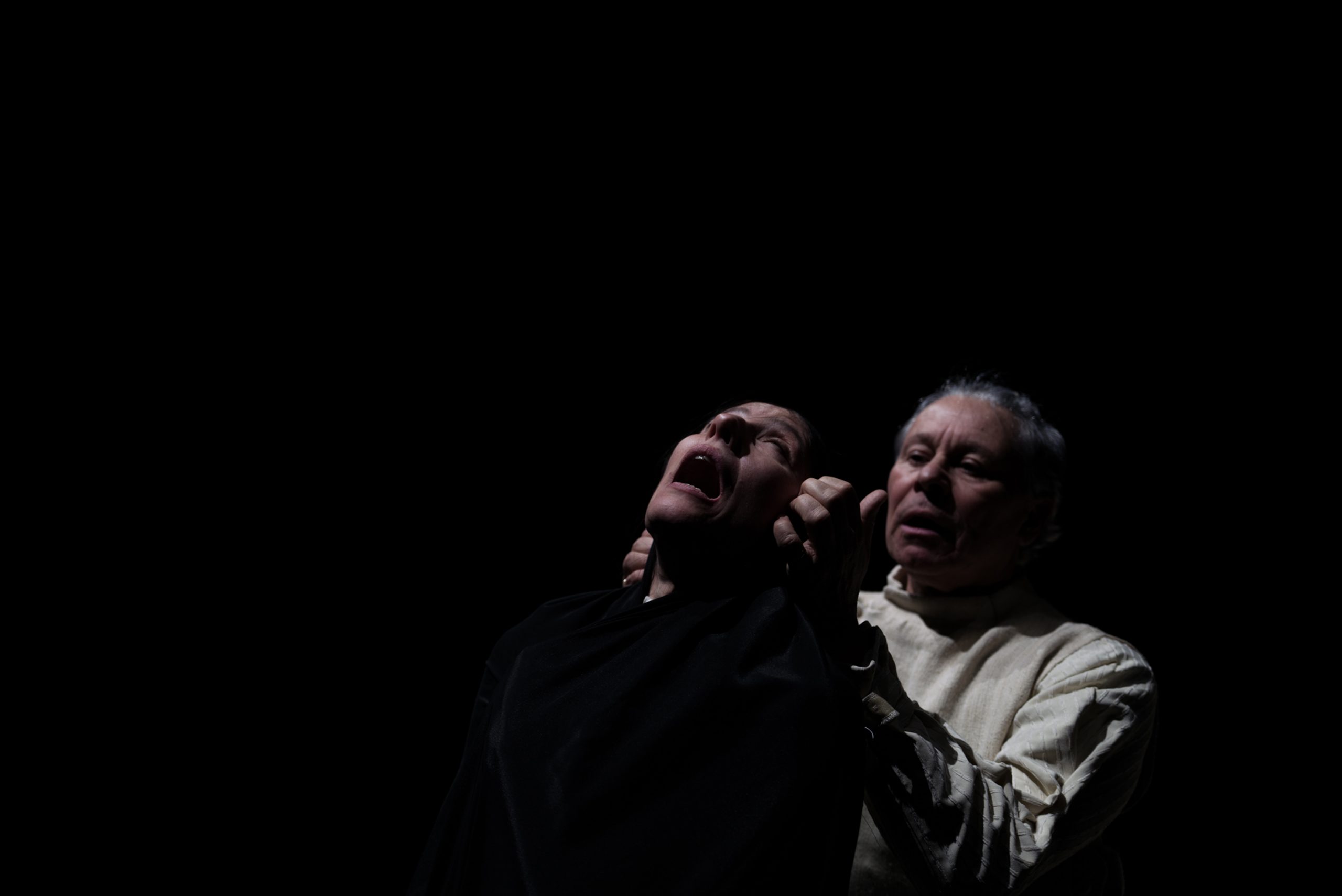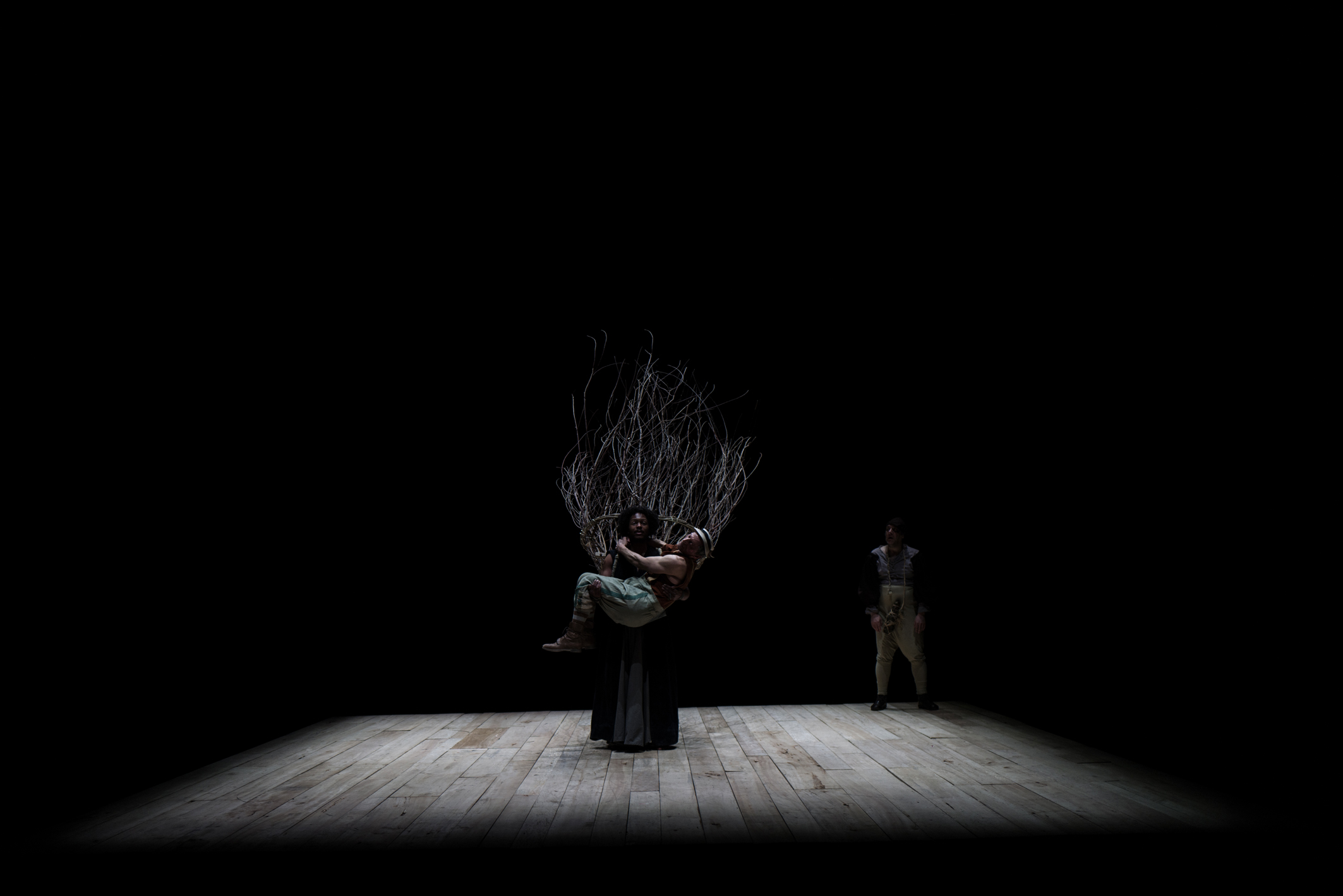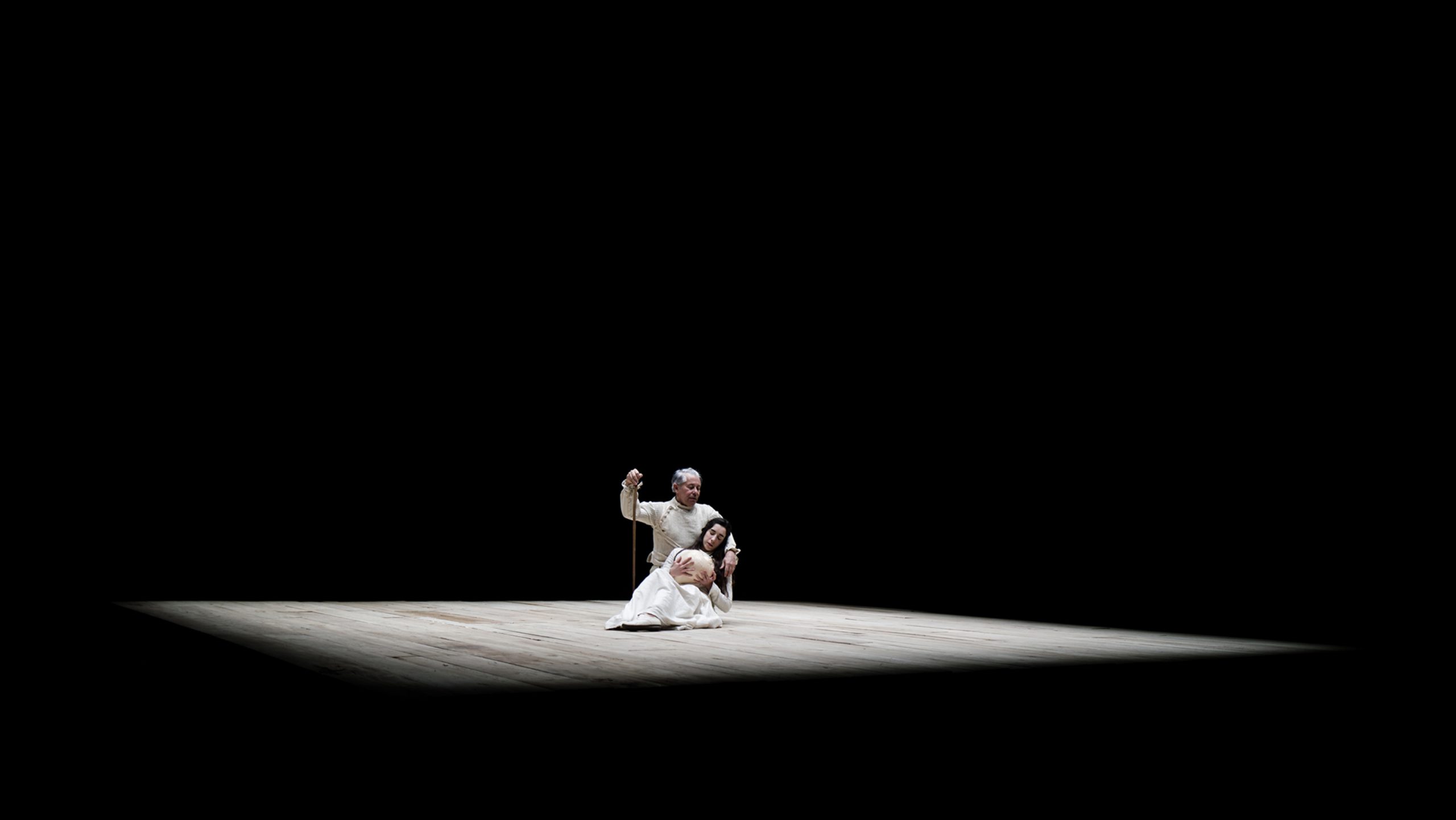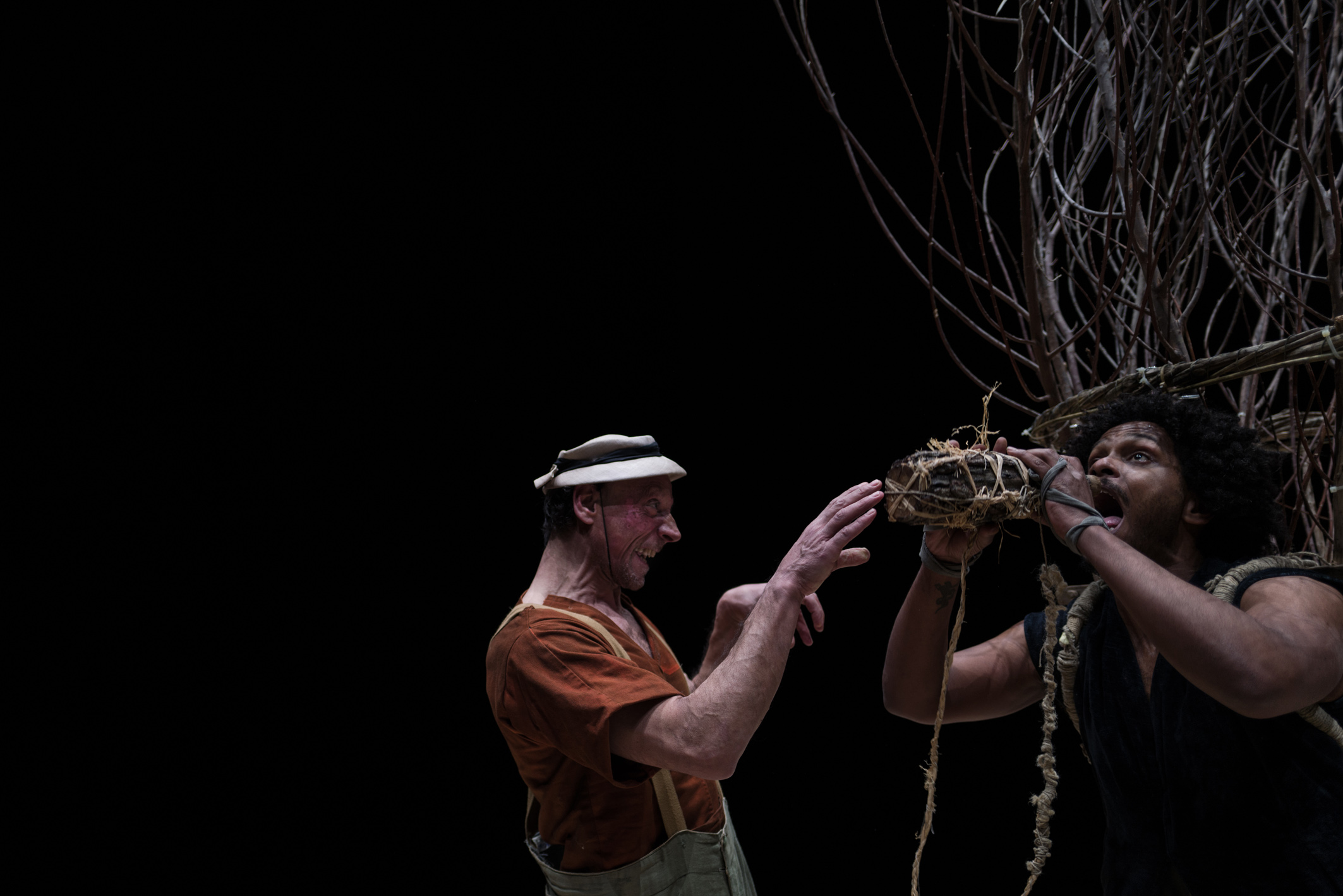In “The Tempest” everyone seeks to seize, consolidate or increase their power. Prospero fails to govern. In other words, he wields power improperly, and soon his own brother, his own blood, plots against him with the King of Naples and sentences him to death by water. Gonzalo rescues him by secretly endowing him with power far greater than political power: magic. However, in the words of Simone Weil, “Whoever is uprooted himself uproots others”. Hence, as soon as he arrives on the island, Prospero uses his magical power to steal it from Caliban, whom he first adopts as his son and then enslaves. He then does the same with Ariel, freeing him from slavery but condemning him to a twelve-year servitude. Even his approach to Ferdinand and Miranda is driven by mere dynastic interests. As soon as they set foot on the island, Antonio talks Sebastian into killing his brother to become King of Naples.
Prospero lacks any sense of transcendence, yet his rough magic ensnares the spirits of Nature, unleashes the storm and raises the dead. But Ariel, a spirit of the air, teaches him the power of compassion and forgiveness. The fact that Prospero rejects vengeance just when his enemies are lying at his feet is his greatest spiritual exaltation. The Supernatural appears precisely when Prospero forsakes it and renounces using it as a weapon.
But Shakespeare seems to imply that the supreme power lies in the power of the Theatre. “The Tempest” is a hymn to theatre delivered by the theatre. Its magical powers lie precisely in this unique and one-time opportunity to experience metaphysical dimensions thanks to a company of boorish comedians treading wooden floorboards, making do with just a few props and a handful of patched up costumes. Therein lies its age-old fascination: everything happens before our eyes, everything is real and yet so clearly simulated, but, above all, this superhuman power only occurs if an audience is willing to listen and see, imagine, and share the silence to create the ritual. People will always have a longing for the Theatre because it remains the only place where human beings can exercise their right to an act of magic.


The Tempest

Teatro Stabile di Torino – National
Theater Rome Theater – National Theater
ERT – National Theater | Sardinia Theater
Festival D’Avignon | MA scène nationale – Pays De Montbéliard
in collaboration with the Reggio Emilia Theater Foundation | Theater Company
Grand Hall
Duration 1.40 (without intermission)
Premiere 2022
By William Shakespeare
Director, set and light designer Alessandro Serra
Cast:
Fabio Barone, Andrea Castellano, Vincenzo Del Prete, Massimiliano Donato, Paolo Madonna, Jared McNeill, Chiara Michelini, Maria Irene Minelli, Valerio Pietrovita, Massimiliano Poli, Marco Sgrosso, Bruno Stori
Premiere 2022
By William Shakespeare
Director, set and light designer Alessandro Serra
Cast:
Fabio Barone, Andrea Castellano, Vincenzo Del Prete, Massimiliano Donato, Paolo Madonna, Jared McNeill, Chiara Michelini, Maria Irene Minelli, Valerio Pietrovita, Massimiliano Poli, Marco Sgrosso, Bruno Stori







 Back
Back 
